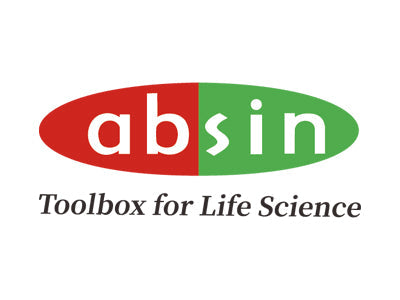Multiplex Immunohistochemistry (mIHC) Experiment Pitfall Guide: Choosing the Wrong Antigen Retrieval Solution Can Make All Your Work in Vain

Have you encountered these issues in multiplex immunohistochemistry (mIHC) experiments: weak target antigen signals, high background noise, or even tissue detachment? These "experimental mishaps" are likely due to the incorrect choice of antigen retrieval solution! Today, we will reveal the differences between various antigen retrieval solutions to help you easily avoid experimental "pitfalls"!
一、Why Is Antigen Retrieval Solution So Important?
In formalin-fixed tissue samples, antigenic epitopes are often masked, preventing antibody binding. The role of antigen retrieval solution is to "uncover" the antigens by using specific pH levels and components, making the target signals clearly visible. However, different antigens are located in different "hiding places" (nucleus, cell membrane, or cytoplasm), and the choice of retrieval solution directly affects signal intensity, specificity, and even determines the success or failure of the experiment!
二、How to Choose Among the 4 Common Retrieval Solutions?
1、Citrate Buffer (pH 6.0)
Applicable scenarios: Cell membrane/cytoplasmic antigens (e.g., CK19); Disadvantages: Weak retrieval ability for nuclear antigens (ER, PR, etc.), and high temperatures can lead to tissue detachment; Pitfall warning: If used for nuclear antigens, it may result in "false negatives" or high background noise!
2、EDTA Buffer (pH 8.0-9.0)
The "savior" for nuclear antigens: For instance, ER and BRCA1 in breast cancer specimens show significantly improved positive rates after EDTA retrieval! Advantages: High pH more thoroughly disrupts protein crosslinks, resulting in strong signals and clean backgrounds.
3、Tris/Tris-EDTA Buffer (pH 9.0-10.0)
Dedicated to sensitive antigens: Suitable for weakly expressed antigens, especially samples close to physiological pH (7.0-7.4); Note: Prolonged high-temperature retrieval may damage tissue structure.
4、Trypsin Method (pH 3.5±0.2)
Niche but crucial: Exposes antigens through enzymatic digestion, suitable for certain special epitopes; Risk: Excessive digestion may destroy tissue morphology, and time must be strictly controlled!
三、Three Experimental Optimization Tips
1、Antigen Retrieval Solutions Can "Clash"? Change After Each Staining Round!
Residual retrieval solution may interfere with the binding of antibodies in the next round, leading to signal cross-contamination; Recommendation: Thoroughly wash with PBS after each staining round and replace with fresh retrieval solution.
2、The Retrieval Method Is More Critical Than You Think!
-
High-pressure thermal retrieval: Suitable for samples that tolerate high temperatures, providing more complete antigen exposure;
-
Microwave retrieval: Gentle but requires repeated optimization of time to prevent localized overheating;
-
Enzymatic digestion: Suitable for delicate tissues, but be wary of over-digestion;
-
Antibody elution solution: Suitable for retrieval of frozen sections and cell smears.
3、Preliminary Experiments Are Essential!
You can try different retrieval solutions on the same sample for comparison, with reference indicators:
✅ Intensity of the target signal;
✅ Level of background noise;
✅ Integrity of the tissue (whether there is tissue detachment).
四、Summary: A Table to Decide on the Retrieval Solution
| Retrieval Solution Type | Optimal pH | Applicable Antigens | Notes |
|
Citrate Buffer(abs9248) |
6.0 |
Membrane/Cytoplasmic Antigens (e.g., CK19) | Use with caution for nuclear antigens, prone to tissue detachment at high temperatures |
|
EDTA Buffer |
8.0-9.0 |
Nuclear Antigens (e.g., ER, PR) | Strong signal, first choice for breast cancer research |
|
Tris-EDTA(abs9342) |
9.0-10.0 |
Weakly Expressed Antigens | Control retrieval time to avoid over-digestion |
|
Trypsin Method |
3.5±0.2 |
Special Epitope Antigens | Strict timing to prevent tissue damage |
|
Antibody Elution Solution(abs994) |
6.0 |
All | Suitable for frozen sections, cell smears |
End-of-Article Bonus
Absin provides antibodies, proteins, ELISA kits, cell culture, detection kits, and other research reagents. If you have any product needs, please contact us.
|
Absin Bioscience Inc. |
 Follow us on Facebook: Absin Bio Follow us on Facebook: Absin Bio |




